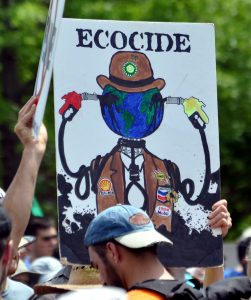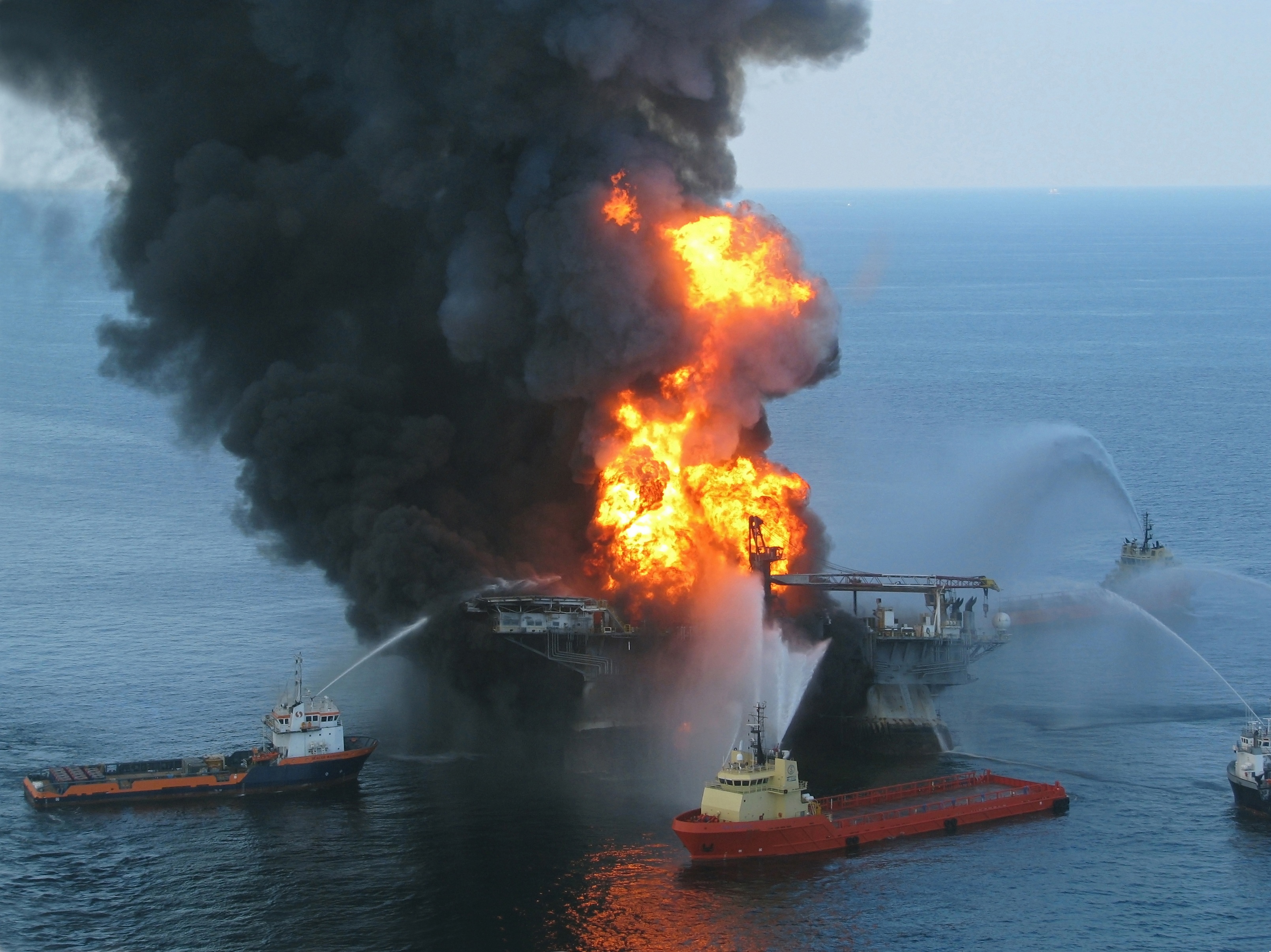Should ecocide be an international crime, alongside war crimes and genocide? The ICC is considering saying yes.
Seventy five years ago last month, the Nuremberg trials convened in the aftermath of World War II in order to prosecute those accused of war crimes and atrocities in Nazi Germany. To coincide with the anniversary, a panel of thirteen international lawyers and environmental experts met to draft a legally robust, practical, and effective definition of ecocide that can be submitted as a statutory amendment at the International Criminal Court (ICC) in The Hague.
If adopted, ecocide would complement existing international offenses and crimes against humanity, such as those prosecuted at Nuremberg so long ago.
The concept has been gaining support in recent years. Small island nations like Vanuatu and the Maldives, which are vulnerable to the effects of climate change and rising seas, asked for ecocide to be seriously considered as a crime at the ICC assembly last December. Supporters also include French President Emmanuel Macron, members of the Swedish parliament, and hundreds of young people who served as international delegates at a 140-country virtual summit called Mock COP26 recently.
So, how would “ecocide” be defined, then? And why is it necessary to do so now, when it’s so clear that the ship has already sailed, as far as avoiding many of the effects of climate change?
Speaking to The Guardian, Jojo Mehta, the chair of the Stop Ecocide Foundation, said that ecocide “would have to involve mass, systematic or widespread destruction,” and would likely be committed by corporations, not individuals who chop “a single tree on a village green.” She notes that in order for the measure to be adopted by the ICC, it would have to be ratified by individual nations. This would give those nations more options when it comes to prosecuting ecocide within their borders. It’s especially important, because right now there’s a “legal vacuum” that results in “crimes against nature, against life… going unpunished,” according to Pablo Fajardo, the panel member and Ecuadorean lawyer leading litigation against Chevron for damage to the Amazon rainforest.
France, however, isn’t waiting for the ICC to act. Based upon the recommendations of the Citizens’ Climate Change Convention, a group of 150 randomly selected French citizens assembled by President Macron last year to vote on proposed measures to address the climate crisis, France is creating a new law that penalizes the offense of ecocide. Penalties would vary in severity based upon the intent of the offender, but extensive ecosystem damage could garner fines between €375,000 to €4.5million (about $455,000 to $5,460,000) or imprisonment for three to ten years.
Justice Minister Éric Dupond-Moretti told the French newspaper Le Journal du Dimanche, “Yesterday, if you polluted, you would win. Tomorrow, if you pollute, you will pay up to 10 times the benefit you would get from throwing your rubbish into the river.”

Removing the incentive to externalize the cost of doing business is a key reason to criminalize ecocide. As it stands, much of the reason that modern industry can make food and consumer items cheap enough to waste is because the full cost of the goods is not paid for by the consumer. Instead, air pollution is paid for by kids with asthma and increasingly acidic oceans, water pollution is paid for by depleted stocks of fish and people unable to eat them, and how many people with environmentally-caused cancers are on their own as far as medical treatment? Sure, the EPA is supposed to be doing the heavy lifting here, but they’re weaksauce even under Democratic administrations that claim to prioritize the environment, let alone when President Trump appoints people hostile to the mission of the EPA to lead it.
It’s long past time for ecocide to stand with genocide and war crimes as a grave offense not only to the natural world, but also to the people, now alive and those not yet born, who will depend upon it for their continued existence. Expect significant opposition from corporations who are afraid for their short-term prospects if they’re held responsible for their actions, but doing so is crucial for the long-term prospects of life on Earth.
Related: Gold King Mine: Animus over the Animas


Join the conversation!